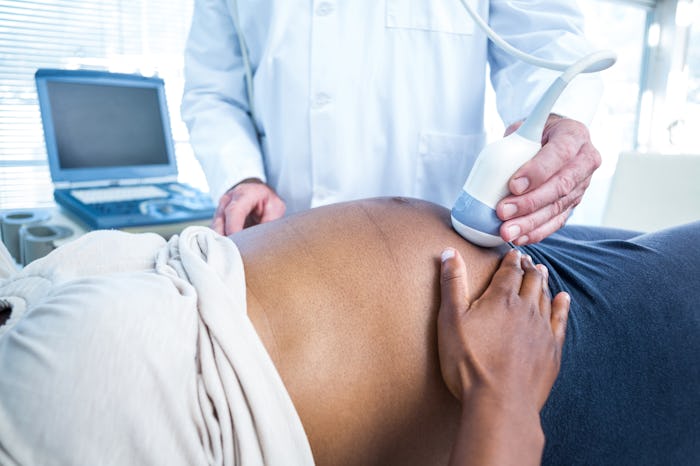Life
Lawmakers Are Taking Action To Solve The Alarming Black Maternal Health Crisis
This week, Democratic lawmakers announced the launch of a Black Maternal Health Caucus to address racial disparities in the health care provided to African American women. The caucus, created by Rep. Lauren Underwood of Illinois and Alma Adams of North Carolina, is already joined by at least 57 members of Congress, according to The Hill, including House Majority Leader Steny Hoyer and Majority Whip James Clyburn.
The caucus, the first-ever of its kind, aims to elevate Black maternal health as a national priority deserving of greater Congressional attention. Underwood cited the alarmingly high maternal death rate among Black women in America as a driving factor, saying the caucus hopes to “explore and advocate for effective, evidence-based, culturally competent policies and best practices for improving Black maternal health.” Underwood said in a statement, “Many of us know that these disparities have not improved in 30 years and maternal outcomes are worsening."
According to the Centers for Disease Control and Prevention (CDC), mothers in America are more likely to die during or shortly after childbirth compared to mothers in other developed nations, citing "considerable racial disparities in pregnancy-related mortality" among Black women.
“When you start to drill into that shocking fact, one thing becomes strikingly clear: a majority of the women that are dying are African American women,” Adams said at the press conference marking the launch of the caucus yesterday. “Structural racism, gender oppression, and social determinants of health inequalities experienced by Black women in America significantly contribute to the high rates of maternal mortality and morbidity.”
In fact, according to 2018 research published in Clinical Obstetrics and Gynecology, Black women are three to four times more likely to die in a pregnancy-related death than their White counterparts. And in a national study of five medical complications that are common causes of maternal death and injury, Black women were two to three times more likely to die than White women who had the same condition. According to the 2018 research, improved quality of health care “may be a critical lever for improving outcomes for racial and ethnic minority women.”
"We cannot and must not accept this," House Majority Leader Steny Hoyer said. "We need to do more at every level — federal, state, local — to ensure that such disparities in maternal health are eliminated." Hoyer's team tells Romper that he is a "strong supporter" of the caucus.
Linda Goler Blout, President and CEO of the nonprofit Black Women's Health Imperative (BWHI), says that addressing maternal mortality in Black communities will require cultural sensitivity and implicit bias training for care providers, comprehensive data collection and reporting on maternal morbidity, and a collective effort from states to fund maternal mortality review teams.
"Although Black women are disproportionately impacted by risk factors related to adverse pregnancy outcomes, such as hypertension and gestational diabetes, these factors are made worse by the compounded stress of gender and racial discrimination and lack of access to quality health care," Blout tells Romper in a statement. She hopes that the new caucus will address solutions "in a way that centers women and their health."
MomsRising, an organization working toward maternal justice that has worked to amplify the voices of Black women, hopes to work with the caucus to achieve real changes. Vice President of MomsRising Monifa Bandele tells Romper in a statement, "The Black Maternal Health Caucus is an important step forward in uplifting and addressing this ongoing national crisis by prioritizing the voices and experiences of Black moms to improve maternal health and save lives."
The Black Maternal Health Caucus was launched just prior to the second annual Black maternal health week, which begins on April 11. With such alarming disparities and the maternal health crisis impacting Black mothers across the United States, the caucus' upcoming work and advocacy will not only be significant, but necessary.
This article was originally published on
